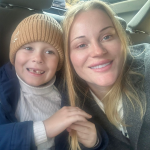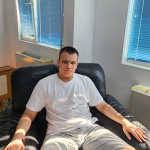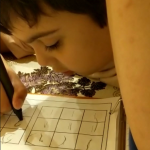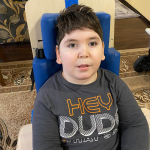How to Prevent Anxiety During Menstruation in Girls with Autism
The beginning of the menstrual cycle marks a significant transition in a girl’s life, requiring special attention. Puberty brings a wide range of changes that can cause anxiety for both the child and their parents, who understandably worry about how their daughter will react to her first period. However, it is possible to navigate this phase smoothly and without distress.
The key factor to consider is that autistic individuals need time to adjust to and accept changes in their lives. This is why conversations about upcoming puberty should start in advance. Additionally, it is crucial for them to understand the terms related to female hygiene. In essence, this is just another learning process—though a slightly more specific one.
Encouraging Independence
Studies have shown that menstruation can be a particularly stressful event for autistic individuals. To prevent increased anxiety, it is essential to take proactive measures and prepare for the first period in advance.
- Introduce your daughter to the relevant terminology and practical procedures.
- Explain how to use sanitary pads or tampons so she can get used to these sensations.
- Develop self-care skills necessary for maintaining proper hygiene, in addition to her usual personal care routine.
Practical Preparation
A teenage girl should be informed that periods can be irregular at her age, and this is not a cause for concern.
- Take a trip to the supermarket together to choose different types of pads or tampons, or browse these products online. Using visual aids can help her understand how to change them properly.
- Explain the importance of changing sanitary pads every 4–8 hours.
Mood Swings and Symptoms During Menstruation
All girls may experience emotional changes during their period. However, if a child struggles with communication or self-regulation, this can lead to challenging behaviors.
- They may experience severe abdominal cramps.
- Pain in the stomach and lower back is common during this time.
- Signs such as anger, sadness, frustration, and even depression may appear, but these are normal.
- Less commonly, headaches, fatigue, and difficulty concentrating may occur.
A More Effective Solution: Cellular Therapy
Autistic girls often have a harder time coping with puberty, making it crucial to address the condition in advance. One of the most effective approaches is cellular therapy, which not only reduces symptoms but can completely eliminate both the symptoms and their root cause. Compared to traditional treatments, this modern and safe method offers the best results.
A key advantage of this therapy is its natural approach, which harnesses the body’s regenerative abilities. It involves using the patient’s own stem cells, which have the unique ability to transform into other types of cells and replace damaged ones. This process helps repair affected areas, leading to the normalization of brain and nervous system function. As a result, additional therapies become much more effective. The effects are long-lasting—often permanent—so no repeated treatments are needed.
While cellular therapy was once considered experimental, its benefits are now widely recognized. In the future, it may become the primary treatment for autism. Today, it is already practiced in leading medical centers worldwide, including the Mardaleishvili Medical Center. This facility is staffed by highly qualified specialists with extensive experience in this advanced treatment. The center is equipped with state-of-the-art technology, ensuring top-tier medical care, yet its treatment costs are lower than in many developed countries.
Another key advantage is the comprehensive support provided at every stage—from travel planning to accommodation arrangements during the rehabilitation period.
Cellular Therapy in Childhood: The Key to a Problem-Free Teenage Years!
Autism Treatment Center Videos
Autism treatment with own stem cells
Cord blood association congress
International Quality Crown
Autism Treatment Reviews
Autism treatment with own stem cells
The story of Alessandro (6 years old)
Autism Patient Testimonial - Stem Cell Treatment
Clients Testimonials

Feedback from Igor, David’s father (12 years old) Read More

Feedback from Olga, Fedya’s mother Read More

Feedback from Natalia, Radomir’s mother (15 years old) Read More

Feedback from Esther, Samuel’s mother (8 years old) Read More

Feedback from Abibe, Selim’s mother (7 years old) Read More












